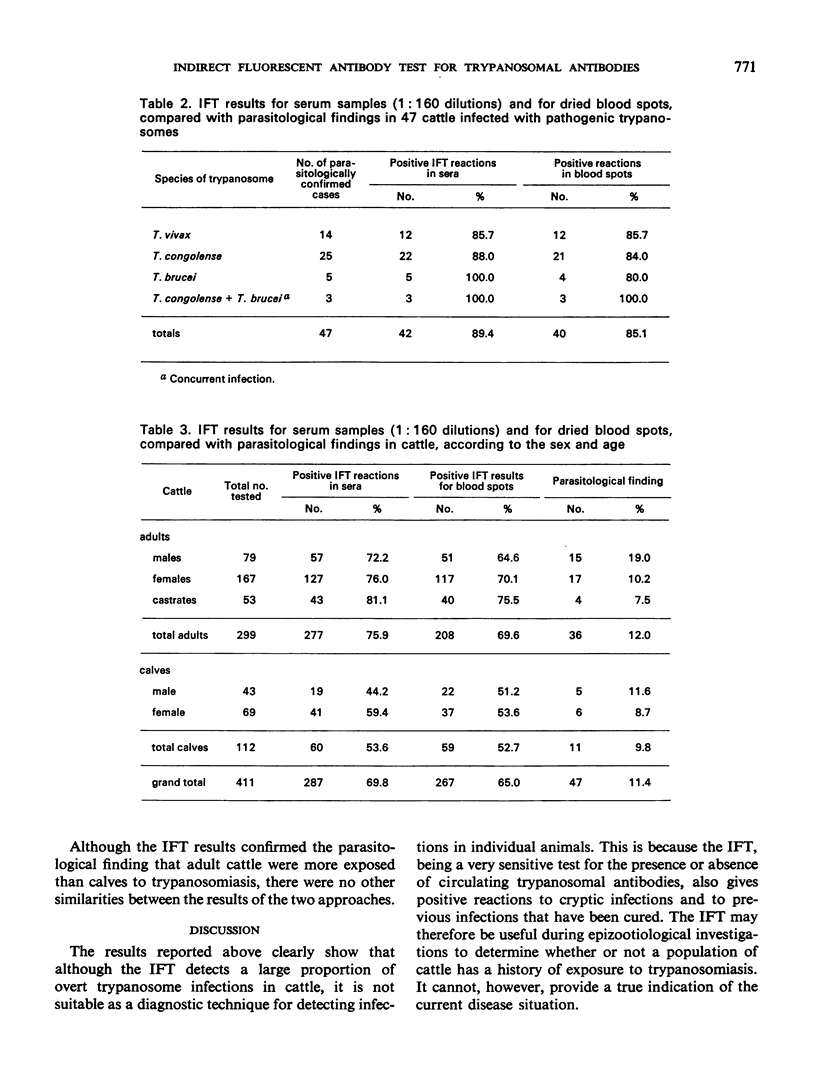Abstract
The indirect fluorescent antibody test (IFT) has been used on a number of occasions to determine the level of trypanosomal antibodies in herds of cattle. In the study reported here, comparisons were made between IFTs applied to diluted cattle sera and to dried whole blood on filter paper, and between these studies and the results of a parasitological survey. The results showed that sera diluted 1: 160 gave IFT responses similar to those obtained from dried blood spots. However, neither test could be used for the diagnosis of individual trypanosome infections, although the IFT was clearly of value in indicating whether or not a herd of cattle had a history of exposure to infection.
Full text
PDF



Selected References
These references are in PubMed. This may not be the complete list of references from this article.
- Allsopp R., Baldry D. A. A general description of the Lambwe Valley area of South Nyanza District, Kenya. Bull World Health Organ. 1972;47(6):691–697. [PMC free article] [PubMed] [Google Scholar]
- Bailey N. M., Cunningham M. P., Kimber C. D. The indirect fluorescent antibody technique applied to dried blood, for use as a screening test in the diagnosis of human trypanosomiasis in Africa. Trans R Soc Trop Med Hyg. 1967;61(5):696–700. doi: 10.1016/0035-9203(67)90135-6. [DOI] [PubMed] [Google Scholar]
- Rickman L. R., Robson J. The blood incubation infectivity test: a simple test which may serve to distinguish Trypanosoma brucei from T. rhodesiense. Bull World Health Organ. 1970;42(4):650–651. [PMC free article] [PubMed] [Google Scholar]


